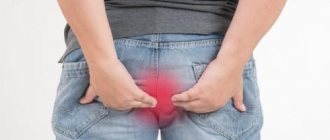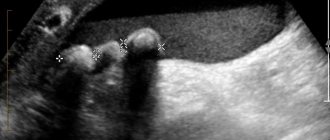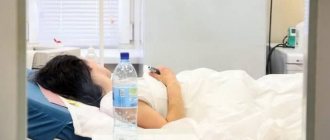Is sick leave required for hemorrhoids?
Hemorrhoids are a serious disease that often worsens, causing severe pain that prevents the introduction of a normal lifestyle. A person cannot move normally, sit, lift even small weights (2-3 kg), as all this increases the pain. Accordingly, many patients, during an exacerbation of the disease, have a question: do they give sick leave for hemorrhoids?
Undoubtedly, the period of exacerbation requires complete rest and the use of drug therapy, therefore, in case of hemorrhoids, a certificate of incapacity is issued. However, to receive it, you must immediately consult a doctor on the day the clinical manifestations of the disease appear. Remember that sick leave is opened strictly on the day you go to the clinic. If a person applies later, the days he spent at home are counted as absenteeism at work.
To obtain a document confirming temporary disability, you need to contact a proctologist. In district clinics, such a specialist is usually absent. In such cases, it is recommended to contact a surgeon.
How many days can I get a certificate of incapacity for work?
The duration of a person’s temporary disability depends on several factors - the stage of the disease, existing complications, the type of treatment performed (conservative or surgical), the nature of the patient’s work activity - the time spent on one’s feet is taken into account, the need for heavy lifting, etc. On average, sick leave for hemorrhoids is issued for 10 days.
Read also
Combined (mixed) hemorrhoids: what is it, symptoms and treatment methods
If acute symptoms are observed in the early stages of hemorrhoids, sick leave may be 3-5 days. With proper treatment, during this period all signs of the disease are eliminated and the patient’s condition returns to normal.
If hemorrhoids have reached grade 2 or 3, during an exacerbation a person experiences a more severe condition. Therefore, the duration of sick leave can be increased by a maximum of a week. In case of advanced hemorrhoids, when surgical intervention is required, the restriction from work is extended to 10 days.
Temporary disability
- The presence of pronounced subjective sensations of discomfort, which include pain, itching in the anus. They indicate that a person is getting sick and are grounds for contacting a doctor.
- Deterioration of a person’s general condition, accompanied by increased body temperature, weakness, loss of appetite, aching muscles and joints (the condition usually accompanies the development of infectious complications with general intoxication).
- The development of objective clinical symptoms that have a negative impact on human health and can cause severe irreversible consequences. Such manifestations include prolapse of the hemorrhoid, the development of bleeding, rectal fissure, thrombosis of the venous vessels of the submucosal layer, and the formation of an abscess (a limited cavity filled with pus).
Pathology is divided into 4 stages. They are criteria for issuing a document:
- 1 – minimal changes that are not accompanied by clinical symptoms and do not lead to temporary disability. Issuance of a document is not required, active therapy is not prescribed;
- 2 – nodules appear that are not inflamed, they do not come out and are accompanied by minimal discomfort in the form of itching. Treatment is required. The person’s ability to work is not impaired;
- 3 – large inflamed nodes that can come out during defecation or during significant physical exertion. An inflammatory reaction with pain develops. A person’s ability to work is reduced, and adequate conservative therapy or surgery is required, as well as the issuance of a document;
- 4 – severe course of the disease with the development of complications, requires surgical intervention with the mandatory issuance of an official document for the entire period of treatment.
Surgical intervention is prescribed for the purpose of radical treatment of hemorrhoids. It involves removing nodes using various techniques. The document is issued by the surgeon for the entire period, which includes:
- Preparation - conducting research, prescribing medication.
- The operation itself.
- The postoperative period, which lasts from 1-2 to 10 days, depends on the surgical technique.
The entire time for which the document is given is on average 10-14 days.
All days that a person spent on sick leave are paid. To do this, the Social Insurance Fund transfers the required amount to the account of the organization in which the employee is registered.
A doctor may prescribe sick leave for hemorrhoids during an exacerbation of the disease. At this time, the patient cannot work physically - it hurts not only to sit, but also to move and stand. Of course, a certificate of incapacity for work is issued not on the basis of the patient’s words and subjective complaints, but only after examination and, possibly, examination.
The duration of sick leave depends on the current condition of the patient, as well as:
- Whether it is acute or chronic hemorrhoids;
- From the profession and nature of the patient’s activity;
- Whether the treatment is effective.
On average, a patient receives 7 days of release from work (or school). Sick leave can be extended to 10 days or more if routine appointments with a doctor do not show a significant improvement in the patient’s condition. Sometimes the doctor may recommend to the management of the organization where the patient works to transfer him to “light work.”
If, for example, a loader applied for sick leave, such a doctor’s recommendation is quite logical.
Office employees who are forced to sit for long periods of time are susceptible to hemorrhoids. Occurs in people engaged in heavy physical labor.
To prevent the disease from developing to stage 4, start treatment. Treatment requirements for hemorrhoids include avoiding heavy physical activity and staying in a sitting or standing position. Physical mobility is dosed correctly. In advanced cases, with severe exacerbation, the patient is prescribed bed rest. Therefore, when treating hemorrhoids in the clinic, they give you a sick leave.
While undergoing outpatient treatment, the patient must regularly visit the doctor and carry out prescriptions at home. Sometimes the disease drags on for a long time and requires lengthy treatment. In conditions of constant employment at work, this is difficult. We recommend that you issue a certificate of temporary incapacity for work for treatment. You will have to contact the proctologist more than once.
A certificate of incapacity for work is opened if the patient’s work activity involves physical activity. Hard work leads to deterioration of health - an outpatient treatment regimen is required. Sick leave for hemorrhoids is issued for the period of treatment and rehabilitation.
If the patient experiences exacerbations of the disease, you need to think about changing the type of activity to a mild option.

According to current labor legislation, sick leave is paid in full or in part, depending on the individual circumstances of the employee. Employees who quit no later than one month from the start of treatment receive compensation.
Exception for payment:
- The patient is on leave without pay. They will not pay for the entire duration of treatment.
- The patient is a full-time student. It is not a sick leave certificate that is required - a certificate of the established form.
- A special form of certificate is required for military personnel and employees of law enforcement agencies.
- A refusal to issue a certificate of incapacity for work is obtained by a patient who refuses to undergo a full examination.
In case of refusal to issue a certificate of incapacity for work, it is recommended to submit a written application to the head of the medical department of the medical institution. Based on the application, a special expert commission is assembled and an internal investigation is conducted. When undergoing surgery, the patient applies to the insurance company for reimbursement. If the treatment is paid, the working citizen submits a notification to the tax authority at the place of residence about partial reimbursement of expenses.
Sick leave after hemorrhoid surgery
After surgery on hemorrhoids, sick leave is issued for 10 days or more. The period of temporary disability depends on several factors:
- type of surgery;
- stages of hemorrhoids;
- presence of complications during the rehabilitation period;
- work activity of the patient.
Minimally invasive interventions
Such operations are rarely accompanied by complications, so in most cases sick leave for hemorrhoids is issued only for 1 day, namely the day when the operation is performed. From the next day the patient can begin work, unless, of course, it requires heavy physical labor. In such cases, sick leave can be extended by 2-3 days maximum.
Extensive interventions
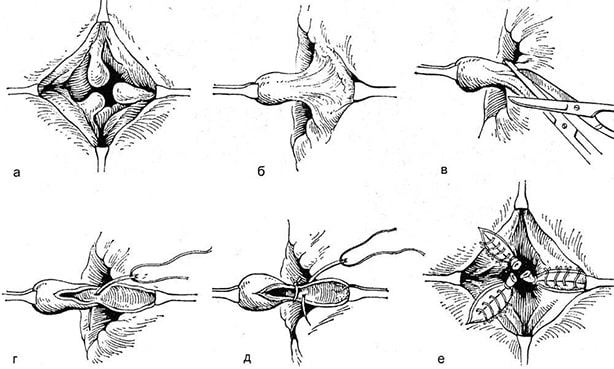
In this case, we are talking about hemorrhoidectomy, during which hemorrhoids and the adjacent mucous membrane of the rectal canal are removed. This type of operation is used for advanced hemorrhoids, when there is loss of hemorrhoidal cones, development of thrombosis, necrosis, etc.
Despite the fact that this is the only effective way to remove hemorrhoids, it has a big drawback - long and difficult rehabilitation. During this period, the patient is contraindicated in any physical activity, including walking. Complete rest is indicated, as well as up to 15 days of treatment at home.
The period of hospital treatment after surgery is on average a week. In this case, the sick leave is opened in the hospital where the surgery was performed. Then it is transferred to a proctologist, who prescribes outpatient therapy. The patient must visit the doctor regularly. If, upon completion of home drug treatment, there are no complications requiring extension of therapy, the sick leave is closed. The next day the person goes to work.
In cases where, after outpatient treatment, the patient complains of pain, bleeding or other complications that require continued therapy, the issue of extending sick leave is decided individually by the commission.
Reviews
Natalya, 33 years old
For a long time I didn’t dare to go to the doctor with my problem, and when I went to the hospital, the hemorrhoids reached grade 3. They scheduled an operation (done for free at a government institution) in a week. The procedure itself took about 40 minutes and did not cause serious discomfort, but the recovery period was agony - I could not go to the toilet from the pain.
Anatoly, 42 years old
You shouldn’t skimp on your health, so when I was diagnosed with internal hemorrhoids, I went to a private clinic. The operation was performed using the laser method. Everything went painlessly, after about a week there was discomfort. I tried to eat minimal food to reduce the number of trips to the toilet (they caused pain). After 3 weeks everything returned to normal.
Tatyana, 29 years old
After giving birth I encountered this problem. It was impossible to ignore her, since bleeding began. They decided to remove the nodes using cryodestruction - it was painless and quick. The procedure cost about 5 thousand rubles, and even during the recovery period there was practically no discomfort during bowel movements.
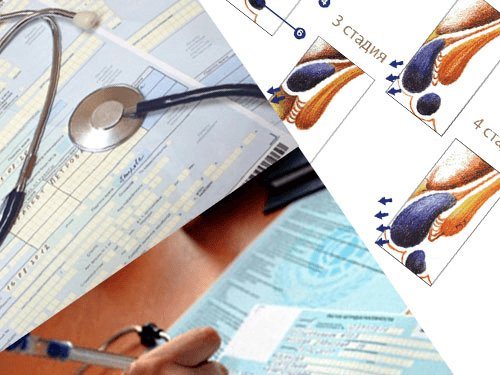
Hemorrhoids are not an infectious disease, but sick leave is also required after it. The fact is that the patient is given time off from work so that he can remain in bed and follow other medical recommendations. The need to sit at work in the first week can negatively affect the health of the person undergoing surgery, cause severe pain and even complications, reducing the effectiveness of the surgical intervention to zero.
It is legally approved that sick leave is issued for 10 days after discharge from a medical institution. Time spent directly in the hospital does not overlap with this period. Before returning home, the patient can stay in the clinic after surgery for up to 5 weeks maximum. More time is required only in case of acute complications. Often, patients are discharged after the second or third week of hospital stay.
In case of complications with hemorrhoids, the period of home rehabilitation can be extended 2 or even 3 times. If the patient’s condition is very serious, the issue is discussed by a special medical commission. She decides how able the patient is to work and whether he currently needs to follow a home regime. Sick leave after hemorrhoid removal cannot exceed 10 months. If the decision to extend was approved by specialists, the patient must visit the treating proctologist every 2 weeks.
When can they refuse to receive sick leave?
A patient may be denied a sick leave certificate if:
- an examination by a doctor and computer diagnostics confirmed the satisfactory condition of the patient and conditions that prevented the performance of work were not identified;
- the patient categorically refuses diagnosis, demanding sick leave only on the basis of his complaints;
- the patient does not follow the recommendations given by the doctor;
- the person is studying by correspondence, but does not have official employment.
If a person believes that he was unreasonably refused, he can contact the head doctor of the clinic. If the situation is controversial, a consultation is held to decide whether or not to issue sick leave to the patient.
When and how many days is sick leave given for hemorrhoids? 5 nuances you need to know
Hemorrhoids are a vascular disease of the rectum that mainly affects people of working age. Such manifestations of the disease as pain, itching, burning and discomfort in the anus bring a lot of trouble, and the patient is unlikely to be able to work during an exacerbation of hemorrhoids with such symptoms. Therefore, many patients are interested in whether they are given sick leave for hemorrhoids, or whether they will have to endure painful symptoms while continuing to perform their professional duties. Let's figure this out.
Read also
Rules for using Papazol: study the instructions
How to avoid making a sensitive disease public?
The patient has the right to ask the attending physician not to indicate the diagnosis on the certificate of incapacity for work. In this case, only the disease code is indicated according to ICD 10 (International Classification of Diseases, 10th revision).
We recommend reading: Vagotomy: selective, stem, surgical technique for peptic ulcer
Certain features of the life of modern man have led to the fact that hemorrhoids are registered more often. The incidence of disease among young, working-age people has also increased. Therefore, information remains relevant about whether sick leave is given for hemorrhoids, in what cases it is necessary, as well as what the possible duration of the sick leave is.
Do they give sick leave for acute hemorrhoids?
Of course, if hemorrhoids worsen, sick leave is issued for the entire period of acute symptoms. But in order to receive a certificate of temporary incapacity for work, you must immediately go to a proctologist when symptoms of the disease appear, since sick leave will be given from the day you consulted a doctor. If the appropriate specialist is not in your clinic, then you can consult with a surgeon, who often serves as a proctologist in district clinics.
Symptoms of acute hemorrhoids
The most common symptoms of hemorrhoids are:
- discomfort in the anal canal;
- itching and burning in the anus;
- pain during bowel movements, which can radiate to the perineum, groin, lower abdomen and even lower back;
- bleeding from hemorrhoids, which occurs during bowel movements and when hemorrhoids are injured.
Also, when hemorrhoids worsen, hemorrhoidal cones fall out of the anus. Depending on the stage of the disease, prolapse of nodes can be provoked by defecation, lifting a heavy object, sneezing, intense laughter, coughing, etc.
If the fallen nodes are not put back in time, they become swollen and very painful. In addition, blood clots can form in the inflamed lump nodes, which is accompanied by unbearable pain.
Also, during an exacerbation, anal fissures often appear in the anus, which can become infected with pathogens, which will lead to the formation of ulcers in the perirectal tissues.
Cases of issuing a certificate of incapacity for work
First, let's figure it out: “Do they give sick leave for hemorrhoids?” Yes, but the need to take sick leave depends on the stage of the disease.
Let's consider in what cases sick leave is given for hemorrhoids.
- First degree. First, unpleasant sensations appear in the anal area, such as itching, burning and pain, which intensify when visiting the toilet. Not every man runs to the doctor as soon as he itches. However, timely prescribed therapy contributes to a speedy cure. If a person is engaged in physical labor, for example, working in a warehouse, he is entitled to sick leave, which will last, on average, a week.
In the future, it would be good to change profession, because lifting weights provokes an exacerbation of the disease. Office workers can easily follow doctor's orders without being distracted from work.
Treatment involves not only the use of suppositories, ointments and other medications, but also diet, giving up bad habits, and an active lifestyle. Second degree. The pain becomes more pronounced, and lumps appear in the anus, which can be easily pushed back. You can also notice traces of blood on the toilet paper. If the early stage of the disease often goes unnoticed, now obvious inconveniences arise.
If you start solving health problems without delay, drug treatment can still help, so you should overcome false shame and consult a doctor.
The specialist decides whether to grant sick leave after performing an examination and carefully studying the patient’s medical history and complaints. It happens that even at this stage it is difficult to do sedentary work.
In addition, you will have to undergo a series of examinations and tests, which will take some time. The decision to issue a certificate of incapacity for work is made by the attending physician.
If you receive a refusal, you can try to appeal it. To do this, you need to apply to the chief physician.
The decision to grant sick leave will be made by the medical commission. If she doesn’t give the go-ahead, you can call your insurance company. Third and fourth degree. The nodes enlarge and fall out even with little physical activity. In addition, there is a danger of thrombosis and strangulation. This causes such suffering that even if you run, it’s not to the office, but to the nearest medical facility.
We recommend reading: Nut poisoning: symptoms of intoxication with different types of nuts, first aid, treatment methods, consequences
It is completely impossible to sit with such symptoms, only if in a figurative sense you “sit down” on sick leave. The doctor may refuse to issue a certificate of incapacity for work only to those patients who do not comply with the recommendations.
Complete rest and bed rest are prescribed, so you will have to take a break from work for a while. If conservative treatment is ineffective, surgery to excise hemorrhoids will be recommended. In this case, it will take longer to recover.
Our website provides the following useful information about hemorrhoids:
- Detailed description of the various stages: first, second, third, fourth;
- Features of the internal course of the disease and external manifestations;
- A list of medications, suppositories and ointments that are used in the treatment of this disease can be found here.
There are also materials that may be of interest to you:
- Do women have a prostate?
- How does cycling affect the prostate gland?
- structure of the prostate gland.
And you can find out about harmful and beneficial products for the male organ here.
Also read about prostate diseases: adenoma, calcifications, stones, fibrosis, abscess, tuberculosis, cyst and why scars form.
Sick leave for hemorrhoids during exacerbation
To get sick leave, you need to go to the nearest clinic to the appropriate specialist. The following doctors are involved in the treatment of hemorrhoids and, accordingly, the issuance of sick leave:
In district clinics where there is no proctologist or coloproctologist on staff, their functions are performed by a surgeon.
As we have already said, a certificate of incapacity for work for hemorrhoids is issued for the entire period of exacerbation of symptoms, and its duration will depend on how severe the disease is. Also, the duration of temporary disability can be affected by the nature of the patient’s work (sedentary work, heavy lifting, etc.).
In case of exacerbation of hemorrhoids at the initial stage, sick leave may be given for 3-5 days, because this time is quite enough to eliminate the unpleasant symptoms of the disease.
With hemorrhoids of the 2nd-3rd stage of exacerbation, symptoms are more severe than the initial stage of the disease, so it will take more effort and time to return to working capacity. On average, specialists issue sick leave for seven days from the moment you contact them.
Stage 4 hemorrhoids are almost always in the acute stage, and the only method for the advanced form of this disease is surgical intervention. A sick leave for hemorrhoids of this stage is issued for at least ten days.
Certificate of incapacity for work after surgery for excision of hemorrhoids
The length of time a patient spends in the hospital after hemorrhoid removal depends on many factors. First of all, the type of operation is taken into account - planned or emergency, the presence or absence of complications. This indicator is influenced by the degree of hemorrhoids at the time of surgery and the characteristics of recovery.
How long does the rehabilitation period last?
An important role in this is played by the individual properties of the patient’s body, which characterize his ability to recover: age, physical fitness, the presence of concomitant chronic diseases and complications.
Excision of hemorrhoids is not a complex intervention; as a rule, the patient stays in a hospital for no more than 3–5 days. And only if complications occur - external or internal bleeding from damaged vessels, suppuration
postoperative wounds and stitches - the number of days for hospital stay increases significantly. This condition requires constant medical monitoring, dressings and antibiotic therapy.
After an operation for excision of hemorrhoids, the sick leave is extended by the proctologist at the place of residence in the clinic. In his absence, a surgeon or therapist. In general, the length of stay for outpatient treatment is about 10 days. However, its duration may vary depending on the patient's recovery rate. The nature of the patient’s work is also taken into account.
A doctor can give sick leave for up to 14 days if work activity involves:
- hard physical labor;
- lifting loads;
- staying on your feet for a long time.
Even if a person feels satisfactory, some types of work may be contraindicated for him.
If complications arise and there is no positive trend in the patient’s health, only a special commission has the right to issue a certificate of incapacity for work in the future. If a positive decision is made in favor of the patient, outpatient treatment and recovery after surgery can be extended by 21 days. In some cases, this period is increased to 1 month.
The sick leave must be submitted to the human resources department at the place of official employment. It is advisable to do this immediately after returning to work. This document officially substantiates the reasons for your absence from work. Timely submission of sick leave guarantees quick payments due to loss of ability to work.
How many days of sick leave is given after hemorrhoid surgery?
The duration of temporary disability after surgical treatment of hemorrhoids also depends on a number of factors, namely:
- type of operation;
- stage and severity of the disease;
- presence of postoperative complications;
- type of work activity of the patient.
Temporary disability after minimally invasive surgical interventions
Minimally invasive surgeries have a number of advantages, including:
- speed of operation;
- low-injury;
- painlessness;
- carried out on an outpatient basis;
- short recovery period (up to three days);
- low risk of complications.
Read also
How to treat hemorrhoids with cold water?
Considering these advantages, we can say that recovery after minimally invasive surgical treatment is easy and quick. In most cases, sick leave is issued for only one day (the day of surgery), and the patient can start working the next day. Sometimes, if the patient’s work activity involves lifting weights or other types of heavy physical labor, a certificate of incapacity for work may be issued for 2-3 days.
Temporary disability after extensive surgery for hemorrhoids
Hemorrhoidectomy is a surgical procedure during which hemorrhoids and part of the rectal canal mucosa are removed. This operation is the only effective method for treating advanced forms of hemorrhoids.
This type of surgical treatment of hemorrhoids also has a serious drawback - a long and difficult recovery period, during which the patient is unable to work. Therefore, a sick leave certificate is issued for the entire period of the patient’s stay in the hospital, as well as for 15 days of outpatient treatment.
After discharge from the surgical department, the sick leave is extended by a proctologist, who will see the patient on an outpatient basis. At the end of this period, the patient undergoes a follow-up examination; if the recovery is successful, there are no complaints or complications, then the sick leave is closed and the patient must begin work the next day.
If after 15 days of outpatient treatment the patient has any complaints and complications that require correction have developed, then the medical advisory commission decides on extending the sick leave until the patient fully recovers - for a maximum of 10 months. But the patient must visit the treating doctor and a medical commission every 15 days for an examination, based on the results of which the sick leave will be extended or closed.
Thus, with a successful operation and with an uncomplicated postoperative period, sick leave is issued for the entire stay in the surgical department and 15 days of outpatient treatment. In case of a complex operation, difficult recovery or referral to sanatorium treatment, a certificate of incapacity for work is issued for a maximum of 24 days.
Is sick leave necessary for pathology?
The term hemorrhoids refers to a chronic disease that is characterized by the formation of nodes in the submucosal layer of the lower rectum and anus. They are of vascular origin and represent protrusions. As the pathological process progresses, the size of the nodes increases, an inflammatory reaction occurs with pain of varying severity, and complications develop (infection with purulent melting of tissue and the formation of abscesses, fistulas, and blood clots).
Since the disease has a chronic course, periods of improvement (remission) alternate with exacerbations (relapse). During a relapse, the symptoms of the disease intensify and inflammation occurs, which requires adequate treatment. Depending on the nature of the therapeutic measures (conservative treatment, surgery), as well as the severity of the relapse, therapy can be carried out in a medical hospital or on an outpatient basis at home.
How is sick leave paid?
In order for sick leave to be paid, according to the law, the patient must provide it to the employer within 6 months after closure.
According to the law, the employer must accrue sick leave benefits within ten days after it is provided and pay with the first advance or salary. But in most cases, the patient receives the money later.
The amount of the benefit depends on the patient's average daily salary over the past 24 months and professional experience. If the patient’s work experience is less than five years, then he will receive 60% of the average salary, if from five to eight years - 80%, and if more than eight years - 100%. Moreover, the employer pays benefits only for the first three days of sick leave, and then sick leave is paid for by the social insurance fund.
How to get sick leave for a patient with hemorrhoids?
I would like to emphasize once again that in order to obtain a certificate of temporary incapacity for work, you need to contact a specialist (proctologist, surgeon) at the first signs of exacerbation of the disease. The doctor will conduct a thorough examination of the body, make an accurate diagnosis and prescribe treatment, and, if necessary, open a sick leave.
A certificate of temporary incapacity for work is not issued to students (they are given a certificate), prisoners, detainees, and also if the patient does not show signs of loss of ability to work or if he refuses further diagnostics.
Is it possible to cure hemorrhoids without interrupting work? In fact, there are a large number of ways to treat a dangerous disease within 24 hours. In this case, the patient will not need to change his work rhythm and daily routine. Treatment takes place without hospitalization.
An excellent solution is minimally invasive treatment. It is cost-effective because it is performed on an outpatient basis and does not require the patient to be released from work.
This type of treatment benefits everyone. And to hospitals, and employers, and the patients themselves. Medical institutions can allocate budgets more efficiently and treat more people. Employers do not lose employees on sick leave. Patients themselves earn more money without being in outpatient or inpatient treatment.
THERE ARE CONTRAINDICATIONS CONSULTATION WITH YOUR DOCTOR IS REQUIRED
Author of the article Alexey Alexandrovich Egorov, proctologist
For how long is sick leave issued after surgery to remove hemorrhoids?
Carrying out an operation to excise hemorrhoidal cones is a fairly serious undertaking, after which the patient will need time to recover. If we take into account the legal norms that are currently in force in the Russian Federation, a sick leave certificate is issued to the patient immediately after he is discharged from the clinic.
It is permissible to extend sick leave for 10 days after the patient has left the institution. That is, sick leave is designed for the entire recovery period in a hospital, as well as for 10 days of recovery at home. The degree of the disease should also be taken into account; in some cases, sick leave is issued for a period of 20 to 30 days; all nuances must be discussed with the attending physician.
A sick leave after hemorrhoid surgery is issued by a proctologist after the patient has passed all the necessary examinations.
If the patient’s condition does not improve, the sick leave may be extended, however, this issue is decided by the composition of the commission. By law, the medical commission has the right to extend the period of sick leave for a period of up to 10 months. However, if the commission approved the decision and the patient was issued a certificate extending the sick leave, it is necessary to visit the health facility regularly (every 15 days) so that specialists monitor the patient’s well-being.
If you are interested in the question of how long you can be on sick leave after hemorrhoid surgery, according to the standard, payments are issued for the entire duration of your stay in the hospital plus 10 calendar days for recovery at home.
If the operation was complex, or complications arose after it was performed, in this case the patient may be sent for rehabilitation to a sanatorium. In such a situation, sick leave is extended, however, by no more than 24 calendar days.
If after the operation the patient’s condition cannot be characterized as satisfactory, then a medical and social examination is required, thanks to which specialists will be able to assess the patient’s condition and, if necessary, establish a disability. This happens extremely rarely during hemorrhoid operations, so sick leave is usually issued for the time spent in the hospital, plus 10 days (this is the minimum period) of the recovery period at home, after which the patient can return to work.
How is sick leave paid?
If we compare 2020 with previous years, the calculation of sick leave has not undergone any significant changes. There is no fixed amount - it all depends on the size of the salary, as well as the employee’s length of service.
- A 100% benefit is paid if the patient’s experience of undergoing surgery to remove hemorrhoids exceeds 8 years.
- 80% of the salary is accrued in the case of 5-8 years of work at the enterprise.
- 60% is paid if a person works for less than 5 years.
Should you count on sick leave for chronic hemorrhoids?
People who face the disease have different professions. However, during exacerbation of chronic hemorrhoids, some types of work are contraindicated - for example, heavy lifting.
With loss, even sedentary work becomes unbearable. Since the patient, during an exacerbation of hemorrhoids, is prescribed only bed rest, of course, you should count on sick leave.
How to get sick leave for hemorrhoids?
If you experience symptoms of hemorrhoids (burning, itching, severe pain in the anus), you should immediately contact your primary care physician. After examination and history taking, the specialist will be referred to a doctor - proctologist, who specializes directly in this disease. After the examination, the coloproctologist will prescribe treatment and also issue a sick leave, if necessary.
A sick leave certificate can also be obtained from a private clinic, however, it will be issued only after passing all the necessary examinations and tests.
Some nuances that the patient should take into account
As soon as the sick leave is handed over to the patient, with all the stamps and signatures, it must be presented to the employer. This must be done as quickly as possible, because if the patient has not provided a certificate 6 months after the onset of the disease, without a good reason, sick leave is not paid.
Sick leave is also paid even if the patient has not had any income over the last two years, but in this case, payments are calculated from the minimum wage (which is 5965 rubles).
Also, the employer is obliged to pay sick leave even if the person falls ill after dismissal (within 30 days). The amount of payments will be 60% of wages on average.
Payments for sick leave for hemorrhoids are made together with an advance payment or salary. The benefit is not paid if the patient was on leave at his own expense during the period of illness. The first three days of sick leave are paid for by the employer, all subsequent days are paid at the expense of the Social Insurance Fund.
In what cases is sick leave not issued for hemorrhoids?
It also happens that a doctor refuses to issue a sick leave, despite all the patient’s complaints. There is a law according to which a doctor does not have the right to issue a sick leave in the following situations:
- if no signs of disability are found in the person who contacts a specialist, this must be determined by the doctor to whom the patient turned for help;
- sick leave is not granted to persons who are in custody or under arrest;
- sick leave is not issued if the patient needs to undergo diagnostic examinations, but he refuses them;
- Students are not entitled to sick leave; they are issued a certificate drawn up according to a special sample.
What to do if the patient really feels unwell, but the doctor refuses to write out a certificate of temporary incapacity for work?
If such a situation occurs, the patient must contact the chief physician and write a statement. Later, a medical commission will be created that will review the medical history, compare all available data and make a final verdict. If the medical commission does not approve the right to sick leave, then the patient has every right to contact the insurance company to appeal the decision.
Since hemorrhoids are a rather unpleasant disease, which makes it difficult to walk and sit, let alone undergo various medical examinations. But there is an easier way to get sick leave. The best option is to go to a private clinic, since, according to the law of the Russian Federation, the patient has every right to independently choose where to undergo treatment. However, there is a catch here: you must first find out whether a private institution has a special license that allows you to issue a certificate of incapacity for work.
If you really feel bad, there is no need to worry. As a rule, in case of exacerbations of hemorrhoids, sick leave is required - and there is no point in talking about surgery, the patient has every right to a recovery period after surgery.
At what stages of hemorrhoids can you get sick leave?
The disease is divided into four stages, each of which has its own symptoms.
- Stage one. Since at this stage the patient does not feel much discomfort, it is not necessary to take sick leave. The exception is work associated with heavy physical labor - in this case the situation can significantly worsen.
- Stage two. Since hemorrhoids are accompanied by severe pain and bleeding, in this case it is necessary to go to the doctor. After the examination, the doctor will be able to determine whether there is a need for sick leave, although, as a rule, a document on incapacity for work is issued immediately, since the patient needs bed rest for treatment.
- Stage three and four. At the third stage, the patient is prescribed treatment, taking medications, and bed rest, so sick leave is mandatory. Stage four hemorrhoids usually require surgery. After it is completed, the patient is issued sick leave for the period of stay in the hospital, as well as for rehabilitation at home - the period is at least 10 days. If there is no improvement, you should consult your doctor, who contains honey. The commission, after conducting the necessary tests, decides whether there is a need to send the patient to a sanatorium, and also for how long it will be necessary to extend the certificate of incapacity for work.
What may determine the period for which a doctor issues a sick leave?
Even in the initial stages of hemorrhoids, long-term conservative treatment is required, as well as regular examinations by specialists, so it is quite important to think about applying for a sick leave. If you start timely treatment. In this case, 7 days will be enough to carry out treatment, which includes taking phlebotonic medications, as well as bed rest.
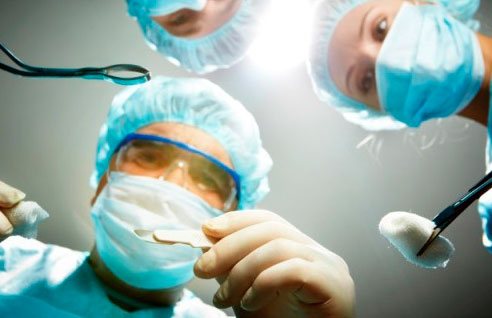
If the treatment does not bring the desired results, the disease only worsens - in this case, the patient is given a referral for surgical intervention, that is, the sick leave can be extended - for the time that the patient will spend in the hospital (usually 2-3 days), and also house restoration - the period is at least 10 days. In general, speaking on average, after hemorrhoidectomy the patient can spend 20 to 30 calendar days in recovery - if the operation went without complications.
As a rule, the duration of sick leave is determined taking into account the following factors:
- degree of hemorrhoids at the time of surgery;
- the nature of the patient’s work is taken into account - if it involves heavy physical activity, heavy lifting - the certificate of incapacity for work is extended;
- The type of operation that specialists will perform is also taken into account;
- the degree of possible complications in the patient.
- If the patient has the second stage of hemorrhoids, a gentle operation was selected, no complications arose after it, and the work does not provoke further development of the disease - the patient has every right to go to work after four calendar days after he left the hospital.
- If the hemorrhoids were stage 4 and a serious operation was performed, then in this case the patient has every right to recovery within 4 weeks after surgery.
As a rule, all questions are discussed with a doctor, since each person is individual and experiences the disease differently.
Complications of the postoperative period of hemorrhoids
1. Pain in the anal area. After surgery to remove hemorrhoids, the pain is caused not so much by the intervention itself, but by the large number of nerve endings that surround the rectum. The most painful sensations await the patient on the second or third day after removal of the nodes. Some people require narcotic analgesia if they have a low pain threshold. However, within a week the discomfort may almost completely disappear, in some cases it may take a little longer.
2. Narrowing of the anus. If the operation was done correctly, this unpleasant consequence should not occur. But it will be possible to check the quality of the intervention only after a few months, when the narrowing of the passage occurs. Treatment of such a complication is carried out with special medical dilators. If the anal ring is very tight, the patient will be indicated for plastic surgery.
3. Frequent constipation is caused not so much by a postoperative complication, but by a psychological effect. The patient expects pain in advance, and the body obeys the commands of the nervous system. To combat this complication, in the postoperative period after hemorrhoids, a special diet is prescribed, based on a large amount of fiber and fluid intake. If a change in diet does not help the situation, the doctor prescribes laxatives and ointments for local anesthesia. In any case, the problem can be dealt with with patience and a little effort.
4. Difficulty urinating. A complication that affects men more than women. Problems with urination, if they appear, occur only 1-2 days after removal of hemorrhoids. When a catheter is inserted into the canal, the bladder is freed, and the next day the patient can go to the toilet on his own.
5. The appearance of fistulas. After removal of hemorrhoids, fistulas may form inside or outside the anus. They are caused by the fact that muscle fibers are also stitched together during the operation. If any infection gets into the wound, the process of suppuration begins and a fistula forms. Treatment of complications in severe cases requires surgery.
6. Bleeding occurs several days after suturing, and if during this period the necessary diet was violated. Another risk group is patients who neglect to use laxatives. Stop the bleeding with sponges or tampons, otherwise another operation will be required.
7. Suppuration is caused by an infection that gets into an unhealed suture (wound). Treatment is carried out with local drugs with anti-inflammatory effects. In severe situations, the abscess is opened and drainage is installed. Surgical interventions performed inside the rectum are usually not required.
The likelihood of recurrence after hemorrhoid treatment
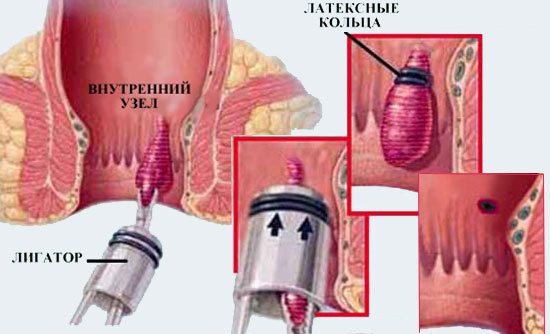
The highest likelihood of relapse occurs 5 years after surgery. The nodes may reappear if the patient does not follow the prescribed regimen. Usually it’s all about the human factor: when the disease does not bother you, they don’t care about its prevention.
It is important not to eliminate hemorrhoids themselves, but to completely get rid of inflammation and strengthen the vascular wall after its removal. To exclude the possibility of relapse, you must avoid:
- excessive physical activity;
- liver failure;
- constant constipation;
- neoplasms in the gastrointestinal tract;
- bad habits;
- constant sitting in one position.
Care after hemorrhoid surgery
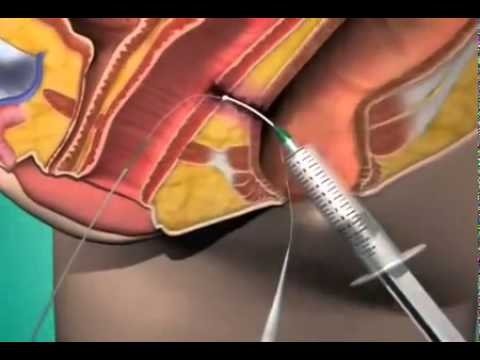
After the operation, the most important time for the patient begins. The well-being of each patient is purely individual, however, there are general recommendations that must be followed.
Care after hemorrhoids mainly consists of proper nutrition. On the first day, eating is not recommended at all, but starting from the second day, you need to eat at least 5 times a day. You will have to exclude from your diet foods that provoke the formation of gases in the intestines.
For the first month after surgery, the consumption of alcohol, coffee, milk, hot sauces, legumes and fatty foods is prohibited. The saving substance will be fiber, which is rich in vegetables and cereals. But fiber also needs to be diluted with proteins and carbohydrates. For patients with removed hemorrhoids, light bread with bran, boiled meat and canned food are recommended.
Particular attention should be paid to the liquid entering the body - the process of defecation is very sensitive to the volume of water consumed. During the postoperative period of hemorrhoids, an adult man is recommended to drink at least 3.5 liters of water per day, and a woman - 2.5-3 liters. You can also drink tea, compote, juice and kefir.
Intensified training is unacceptable after hemorrhoid removal, but simple physical therapy should be performed daily. Another prohibition is lifting heavy objects, but you need to walk a lot and regularly in order to stabilize blood flow in the pelvic organs.
After each trip to the toilet, disinfection is necessary so as not to introduce bacteria into unhealed stitches, which will cause suppuration. Therefore, it is recommended to use a shower or bed.
What does hemorrhoids look like after surgery?
Hemorrhoids may not completely disappear after surgery. This is due to the fact that doctors prefer to remove only inflamed lumps, and leave those that do not really bother the patient until the next intervention.
The anal passage appears intact if the operation was performed on the inner surface of the rectum. If problem areas remain after external surgical intervention, then the skin around the anus also has some imperfections, but the remaining nodes are quite difficult to notice.
After removal of hemorrhoids at the beginning of the postoperative period, the nodes may fall out again and not cause discomfort. But in this case, the patient should undergo conservative treatment to avoid another operation in the future.
Removal also causes the anus to narrow to prevent hemorrhoids from coming back. Sometimes the anus looks a little “bruised” due to the fact that excess skin is visible. To remove this defect, plastic surgery may be performed.
How long do you stay in the hospital after hemorrhoids?
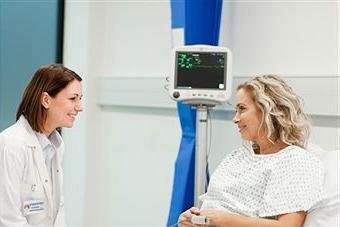
On average, after hemorrhoid removal, the patient will have to stay in the hospital for 4 weeks. If the operation was performed using minimally invasive methods, the postoperative period lasts up to 5 days. Doctors do not prohibit starting work earlier, but patients should not remain in a sitting position for a long time.
After hemorrhoid surgery, the patient needs care and therapy procedures, regardless of the type of intervention. When a person is able to get back on his feet, the rehabilitation period is noticeably reduced. The longest is therapeutic exercises and diet (you need to follow the regime outside the clinic walls).
If there is bleeding around the anus and the skin looks inflamed, you should not begin vigorous activity. Rehabilitation after removal of hemorrhoids is considered to have come to an end if the pain remains only when visiting the toilet. The treatment was successful if new venous seals do not appear within three months. Unpleasant sensations after removal of cones disappear gradually and directly depend on following the recommendations of the proctologist.
What should you not do after hemorrhoid removal?
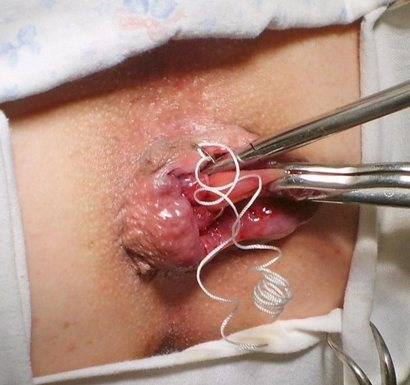
During the postoperative period, it is prohibited to sit in a sitting position without a special pillow, so as not to interfere with stable blood flow. The operation also obliges you not to neglect washing the anus after using the toilet in order to prevent the appearance of fistulas.
Drinking alcohol is prohibited as it has a fixing effect. On the first day of the postoperative period, it is not recommended to eat, so as not to nullify the effect of the operation.
If itching occurs, it is unacceptable to touch hemorrhoids with your hands - only with sterile cotton swabs. The removal operation also prohibits straining during bowel movements for a month, this is possible if you follow a diet. It is not recommended to wipe the surgical site with hard paper so as not to provoke bleeding.
Self-treatment of hemorrhoids with repeated prolapse with suppositories and ointments is not recommended without consulting a proctologist. Removing non-inflamed venous seals is also unacceptable, even if the doctor insists on it.


